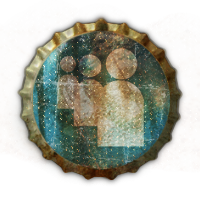2014年02月06日の私のお勧め
Account of the Romansh Language
An Account of the Romansh Language.
By Joseph Planta, Esq. F. R. S.
In a Letter to Sir John Pringle, Bart. P. R. S.
[Handwriting: Phil. Trans. vol LXVI. A.D. 1776]
British Museum,
June 30, 1775.
SIR,
The Bible lately presented to the Royal Society by Count de Salis, being a version into a language as little attended to in this country, as it may appear curious to those who take pleasure in philological inquiries; I embrace this opportunity to communicate to you, and, with your approbation, to the Society, all that I have been able to collect concerning its history and present state.
This language is called Romansh, and is now spoken in the most mountainous parts of the country of the Grisons, near the sources of the Rhine and the Inn. It consists of two main dialects; which, though partaking both of the above general name, differ however so widely as to constitute in a manner two distinct languages. Books are printed in both of them; and each, though it be universally understood in its respective district, is yet sub-divided into almost as many secondary dialects as there are villages in which it is spoken; which differ, however, but little except in the pronunciation. One of the main dialects, which is spoken in the Engadine, a valley extending from the source of the Inn to the frontiers of the Tyrolese, is by the inhabitants called Ladin. It admits of some variation, even in the books, according as they are printed either in the upper or the lower part of this province. The abovementioned Bible is in the dialect of the lower Engadine; which, however, is perfectly understood in the upper part of that province, where they use no other version. The other dialect, which is the language of the Grey, or Upper. League, is distinguished from the former by the name of Cialover:[A] and I must here observe, that in the very centre, and most inaccessible parts of this latter district, there are some villages situated in the narrow valleys, called Rheinwald, Cepina,[B] &c. in which a third language is spoken, more similar to the German than to either of the above idioms, although they be neither contiguous, nor have any great intercourse with the parts where the German is used.
It being impossible to form any idea of the origin and progress of a language, without attending to the revolutions that may have contributed to its formation and subsequent variations; and this being particularly the case in the present instance, wherein no series of documents is extant to guide us in our researches; I shall briefly recapitulate the principal events which may have affected the language of the Grisons, as I find them related by authors of approved veracity.[C]
Ambigatus, the first king of the Celtic Gaul upon record, who[D] about 400[E] years before Christ, governed all the country situated between the Alps and the Pyrenaean mountains, sent out two formidable armies under the command of one of his nephews; one of whom, named Segovisius, forced his way into the heart of Germany: and the other, Bellovisius, having passed the Alps, penetrated into Italy as far as the settlements of the Tuscans, which at that time extended over the greatest part of the country now called Lombardy. These, and several other swarms of invaders whom the successes of the former soon after attracted, having totally subdued that country, built Milan, Verona, Brescia, and several other considerable towns, and governed with such tyrannic sway, especially over the nobility, whose riches they coveted and sought by every means to extort from them, that most of the principal families, joining under the conduct of Rhætus[F], one of the most distinguished personages among them, retired with the best part of their effects and attendants among the steepest mountains of the Alps, near the sources of the Rhine, into the district which is now called the Grey League.

「記事引用」
2014年02月06日 12時 木曜日feat. D.O Reloaded 続き>>
Account of the Romansh Language
An Account of the Romansh Language.
By Joseph Planta, Esq. F. R. S.
In a Letter to Sir John Pringle, Bart. P. R. S.
[Handwriting: Phil. Trans. vol LXVI. A.D. 1776]
British Museum,
June 30, 1775.
SIR,
The Bible lately presented to the Royal Society by Count de Salis, being a version into a language as little attended to in this country, as it may appear curious to those who take pleasure in philological inquiries; I embrace this opportunity to communicate to you, and, with your approbation, to the Society, all that I have been able to collect concerning its history and present state.
This language is called Romansh, and is now spoken in the most mountainous parts of the country of the Grisons, near the sources of the Rhine and the Inn. It consists of two main dialects; which, though partaking both of the above general name, differ however so widely as to constitute in a manner two distinct languages. Books are printed in both of them; and each, though it be universally understood in its respective district, is yet sub-divided into almost as many secondary dialects as there are villages in which it is spoken; which differ, however, but little except in the pronunciation. One of the main dialects, which is spoken in the Engadine, a valley extending from the source of the Inn to the frontiers of the Tyrolese, is by the inhabitants called Ladin. It admits of some variation, even in the books, according as they are printed either in the upper or the lower part of this province. The abovementioned Bible is in the dialect of the lower Engadine; which, however, is perfectly understood in the upper part of that province, where they use no other version. The other dialect, which is the language of the Grey, or Upper. League, is distinguished from the former by the name of Cialover:[A] and I must here observe, that in the very centre, and most inaccessible parts of this latter district, there are some villages situated in the narrow valleys, called Rheinwald, Cepina,[B] &c. in which a third language is spoken, more similar to the German than to either of the above idioms, although they be neither contiguous, nor have any great intercourse with the parts where the German is used.
It being impossible to form any idea of the origin and progress of a language, without attending to the revolutions that may have contributed to its formation and subsequent variations; and this being particularly the case in the present instance, wherein no series of documents is extant to guide us in our researches; I shall briefly recapitulate the principal events which may have affected the language of the Grisons, as I find them related by authors of approved veracity.[C]
Ambigatus, the first king of the Celtic Gaul upon record, who[D] about 400[E] years before Christ, governed all the country situated between the Alps and the Pyrenaean mountains, sent out two formidable armies under the command of one of his nephews; one of whom, named Segovisius, forced his way into the heart of Germany: and the other, Bellovisius, having passed the Alps, penetrated into Italy as far as the settlements of the Tuscans, which at that time extended over the greatest part of the country now called Lombardy. These, and several other swarms of invaders whom the successes of the former soon after attracted, having totally subdued that country, built Milan, Verona, Brescia, and several other considerable towns, and governed with such tyrannic sway, especially over the nobility, whose riches they coveted and sought by every means to extort from them, that most of the principal families, joining under the conduct of Rhætus[F], one of the most distinguished personages among them, retired with the best part of their effects and attendants among the steepest mountains of the Alps, near the sources of the Rhine, into the district which is now called the Grey League.

「記事引用」
2014年02月06日 12時 木曜日feat. D.O Reloaded 続き>>
PR
Comment
コメントの修正にはpasswordが必要です。任意の英数字を入力して下さい。
カレンダー
フリーエリア
最新コメント
最新記事
(05/11)
(05/11)
(05/11)
(05/10)
(05/10)
プロフィール
HN:
sihobisa03
性別:
非公開
ブログ内検索
最古記事
(11/13)
(11/14)
(11/14)
(11/14)
(11/14)
P R








